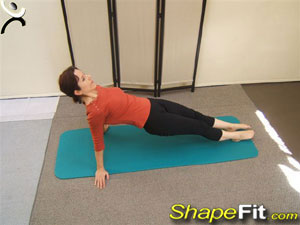How Long does it take to Train for a Half-Marathon?
Here are a few of the most common training schedules to get yourself a spot on the starting line and beyond.
Half-Marathon Training Plan for Casual Runners
This 8-week plan assumes you can run comfortably for 30 minutes three to four days a week. The program includes:
- Easy runs: These are conversational-paced jogs designed just to get you out the door and moving
- Tempo runs: Pick up the pace to faster than conversational but slower than an all-out sprint
- Speedwork: Intervals, like 400-meter repeats, that help build speed and race pace
- Long runs: These runs will build both distance and endurance as race day approaches
- Cross training: Activities other than running, like cycling or swimming, to improve overall fitness
- Rest: Active rest days can include gentle stretching or yoga, while complete rest days are vital to recovery
Half-Marathon Training Plan for Ambitious Runners
This plan assumes you can run comfortably for 45–60 minutes three to five days a week and will prepare you to finish the half-marathon as fast as possible. Like the previous plan, this one includes easy runs, tempo runs, speedwork, long runs, cross-training, and recovery days.
The overall mileage will be a bit higher, and the quality runs—like tempo runs or long runs—will be more challenging. There will also be more time spent on pace-specific training to make sure you practice running at goal pace.
Other Factors that Can Affect How Long It'll Take
The exact amount of time it takes you to train for a half-marathon will also depend on a number of other factors, including:
- Your fitness level: If you're already in good shape, you'll be able to start training at a higher level and progress more quickly. If you're new to running, you'll need to start slowly and gradually build up your mileage.
- Your goals: If you're just looking to finish the half-marathon, you won't need to train as intensely as if you're trying to set a personal best.
- Your lifestyle: If you have a lot of other commitments, you'll need to make sure you can fit training into your schedule.
- Your body type: Some people are naturally better suited for running than others. If you have a naturally high pain tolerance and injury-resistant body type, you may find that you can progress more quickly with your training.
Start Where You Are
The most important thing is to start training where you are and gradually build up your mileage. If you try to do too much too soon, you're likely to overtrain and get injured. If you follow this advice, you can reduce your risk of injuries and ensure a successful half-marathon training experience.
-
Exercise Ball Abdominal Pull Ins – Exercise Ball Guide
Exercise Advice: Using a large exercise ball, begin in
-
Standing Cable Curls – Biceps Exercise Guide with Photos
Muscles Targeted: Standing cable curls target the bice
-
Standing Low Cable Deltoid Raise – Shoulder Exercise Guide
Exercise Advice: Stand next to a cable pulley machine
-
Promoting Exercise for Kids
Promoting Exercise for Kids
-
Seated Barbell Deltoid Military Press – Shoulder Exercise Guide
Exercise Advice: Position yourself on a free weight Mi
-
Fab Abs!
Do you perform abdominal crunches correctly? Ask your trainer or know
- Exercise Guides
- Simple Ways to Make a Fitness Workout Fun
- T-Stabilization Lockout – Core Exercise Guide with Photos
- One Leg Cable Kickbacks – Hamstring Exercise Guide
- Single Leg Kick – Pilates Exercise Guide with Photos
- Lying Tricep Extensions – Kettlebell Exercise Guide with Photos
- High Pull With One Arm – Kettlebell Exercise Guide With Photos
- 21-Day Jumpstart Exercise Plan for Beginners
- Dips – Triceps Exercise Guide with Photos and Instructions
- One Legged Cable Kickbacks – Butt Exercise Guide with Photos
- Halibut Kabobs



